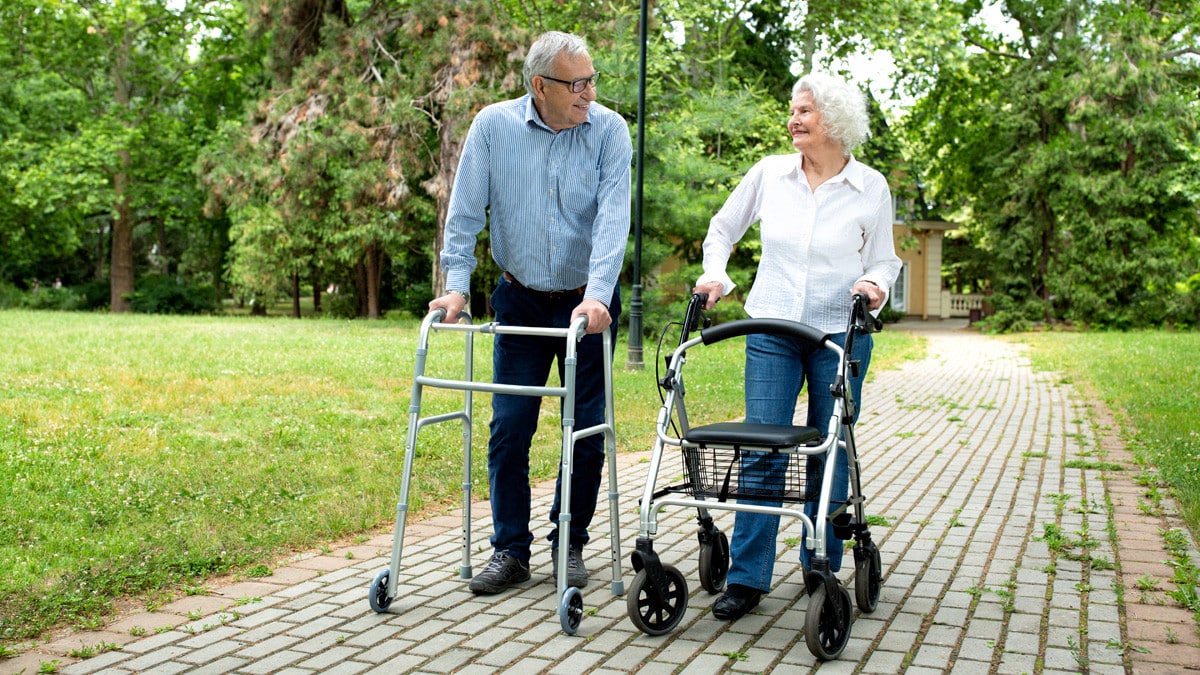As our loved ones grow older, it becomes increasingly important to help them maintain their independence and enjoy the golden years of their life. While aging is an inevitable part of life, certain vital health measures can significantly help our seniors live better, feel stronger, and stay more active for longer. In essence, promoting quality living can be as simple as fostering healthy habits like regular exercise and a nutritionally balanced diet. Recognizing the aging needs of your senior loved ones does not only make them feel loved and cared for, but also empowers them to lead an independent life, on their terms.
Encouraging Regular Exercise
Keeping a senior loved one active and engaged isn’t always a walk in the park. The aches and groans that come with aging can sometimes be a deterrent to regular exercise, but don’t lose heart. Exercise is incredibly beneficial for seniors, both physically and mentally.
Start off with a conversation. Engage your loved one in a discussion about the benefits of regular exercise. Don’t forget to drop in how much it can aid their independence and daily living. Remember that it doesn’t need to be highly strenuous activities. Even walking around the neighborhood or gentle gardening can be great forms of exercise. Being open about the importance of regular movement works wonders in motivating towards a healthier lifestyle.
Next, help them choose an exercise that fits their interests and abilities. Whether it’s an aqua aerobics class for the water-loving octogenarian or yoga for the peace-seeker, there is something for everyone. Consider mobility and health concerns when choosing the activity.
For the tech-savvy senior, introduce fitness bands and smart watches. Not only can they monitor their daily steps and heart rate, but they might just pick up a new hobby tracking their fitness progress.
Partner up with them! If your schedules allow, take a walk together or sign up for an exercise class. It eases their misunderstanding or fear about starting a new activity and ensures you both get to spend some quality time together.
Consider hiring a personal trainer who specializes in senior fitness. They’ll customize a routine perfect for your loved ones’ needs and abilities. Plus, having a trainer will make exercise sessions more accountable and consistent.
Also, importance of rest cannot be overstated. Encourage your senior loved one to listen to their body, respect its limits, and to rest between exercise days. A balance between rest and movement will help prevent overexertion and injury.
Adjust their diet to complement their new exercise regimen. Incorporating protein-rich foods can help repair and build muscles, while staying hydrated will ensure they can exercise with minimal discomfort.
Maintaining a regular exercise routine in the golden years isn’t just about adding years to life, but life to years. It’s about preserving independence, enhancing quality of life, and making the most of these special years. Empowering and supporting your senior loved one in their fitness journey can be the catalyst they need to embrace a healthier, happier lifestyle. Let the journey begin!

Promoting a Healthy Diet
Living a healthy lifestyle is not just about physical activity – food plays a substantial role. If you have a senior loved one, transitioning them into a healthier diet may seem a daunting task, particularly if they’ve been set in their eating habits for decades. But worry not, here are some effective strategies to kickstart a healthier dietary routine for your senior family member.
First things first – regular communication is vital. Always discuss with them the importance of what they eat and how it affects their physical health. Patiently explain that it’s never too late to make beneficial dietary changes and how these changes can greatly impact their wellbeing.
Introduce them to the concept of portion sizes. As people age, metabolism slows down, and energy needs decrease. Show them how to balance meals with the right amount of proteins, carbs, and fats.
Recognize that taste preferences may adjust with age. Things like medications or health conditions can affect the way foods taste to seniors. Encourage them to use herbs and spices instead of reaching for the salt shaker.
Always keep the fridge stocked with wholesome convenient foods. Prepare a selection of healthy, easy-to-grab snacks like chopped fruits and veggies, or hummus and whole-wheat crackers. Having simple-to-prepare meals on hand helps them make better choices.
Fluid intake is another important consideration. Insufficient hydration can lead to cognitive impairment and other health issues in seniors. Encourage water intake by adding slices of lemon, cucumber, or fresh fruits for a touch of flavor.
Sometimes, nutritional supplements may be necessary, especially if they struggle with nutrient absorption or reduced appetite. However, it’s essential to consult with a healthcare provider before starting any new supplement regimen for them.
And finally, remember to encourage a healthy relationship with food. Instead of focusing on restrictions, motivate them to discover new recipes and ingredients. Always celebrate their achievements in adopting healthier habits.
While it might seem challenging, promoting a healthier diet for your senior loved one is achievable. By making small changes, providing loving support, and nurturing a positive perspective on food, they will gradually embrace the path to healthier eating, improving their quality of life in the golden years.

In the journey of aiding our senior loved ones maintain independence, regular exercise and a healthy diet undeniably form the cornerstone. However, valuing their input, respecting their choices, and making conscious efforts to keep them engaged and active will yield incredibly positive results as well. Remember, nurturing them is not just about their physical health but equally about their mental and emotional wellbeing. With patience, compassion, and the right strategies, we can significantly enhance their quality of life and make their golden years truly golden. After all, it’s not just about adding years to life, but more importantly, life to years.



